FPMT Masters Program
seven-year residential & online program
Starting February 2024
Program Curriculum
- ORNAMENT FOR CLEAR REALIZATION (ABHISAMAYALAMKARA)
- SUPPLEMENT TO THE 'MIDDLE WAY' (MADHYAMAKAVATARA)
- TREASURY OF KNOWLEDGE (ABHIDHARMAKOSHA)
- COMMENTARY ON VALID COGNITION (PRAMANAVARTTIKA)
- GROUNDS AND PATHS OF SECRET MANTRA
- THE TWO STAGES OF GUHYASAMAJA TANTRA
Apply now
If you have any questions, please contact us via mp@nalanda-monastery.eu.
Become an adept of Buddhist philosophy and practice!
- Study and practice the main Tibetan and Indian Buddhist texts at one of the largest Tibetan Buddhist monasteries in the West
- Deepen your understanding of the main subjects underlying Mahayana Buddhism: the Perfection of Wisdom, the Middle Way, the stages of the path, logic and tantra
- Study under the guidance of our resident teacher, Lharampa Geshe Gyaltsen, and highly qualified western tutors in an international community of Dharma practitioners
- Engage in in-depth meditation retreats that balance and integrate your academic understanding

Study the FPMT Masters Program in Buddhist Studies of Sutra and Tantra
The FPMT Masters Program is the unique vision of Lama Thubten Yeshe, first implemented and developed into the current curriculum by Geshe Jampa Gyatso. As a full-time study program with integrated practice and training components, it aims at providing serious students of Lama Tsongkhapa’s tradition greater depth of study and trains qualified teachers of Buddhist theory and practice.
From February 2024 until 2030 Nalanda Monastery will offer the seven-year FPMT Masters Program, an extraordinary opportunity to deepen one’s understanding and practice of Buddhism here in the West. The FPMT Masters Program is a full-time, residential program consisting of six years of study and one year of retreat. It is modeled on the Geshe Studies of the great Tibetan monasteries and covers all the major texts in their curriculum, such as Ornament for Clear Realization by Maitreya, Supplement to the Middle Way by Chandrakirti, Treasury of Knowledge by Vasubandhu and Commentary on Valid Cognition by Dharmakirti.
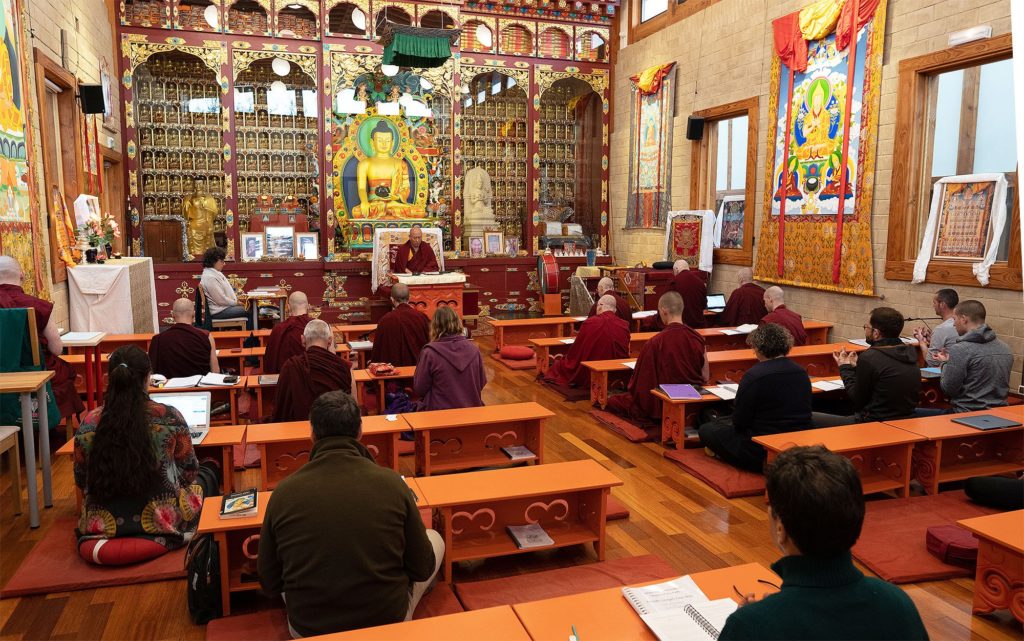
The FPMT Masters Program will be taught by Geshe Gyaltsen, who graduated with a Lharampa degree – the highest possible degree in the Gelug tradition of Tibetan Buddhism – from Sera Je monastery. Geshe Gyaltsen has been teaching at Nalanda since 2014 and is widely admired and liked by students for his erudition, deep and clear explanations and inspiring demeanor. The teachings will be complemented by review classes taught by a highly qualified teaching assistant. The program involves regular quizzes and exams, continuous self-evaluation of behavior, daily meditations, occasional shorter retreats and one long, final retreat.
Nalanda Monastery is located in a beautiful and spacious environment in the south of France and is home to an international community of monks and lay people. For several decades it has been a center for intensive study and contemplation, and a haven for monastics to live within their vows. The natural environment, modern IT and library facilities, along with the calm and friendly atmosphere create very favorable conditions for study. The FPMT Masters Program is a rare opportunity for both monastics and lay students to develop their Dharma practice.
FPMT Masters Program mission statement
The FPMT Masters Program’s mission is to provide full-time in-depth education for students of the Tibetan Mahayana tradition of Lama Tsongkhapa with emphasis on the integration of academic, practice, behavior, service and training components. In addition to offering students a profound deepening of their Dharma understanding and practice, the FPMT Masters Program aims at providing the FPMT with highly qualified Western teachers of Buddhist theory and practice.
The five main components are:
- The academic component: daily teachings and tutorials, in-class quizzes and exams, a three-month review with final exams.
- The meditation component: daily meditations and retreats.
- The attitude and behavior component: daily self-evaluation, fulfilment of the patience requirement, standard of ethical conduct
- The service component: contribution of a minimum of five hours per week in the form of various assigned tasks that benefit the center, community and program
- The training component: leading discussions and meditations, giving presentations, preparing course materials and discussions, participation in FPMT trainings, etc.
2.1. The academic component
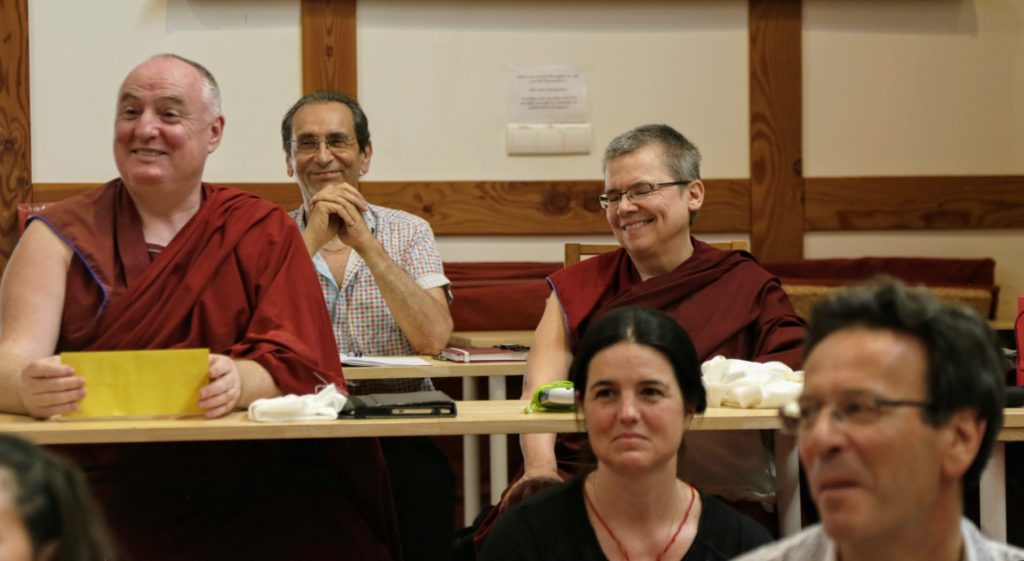
The academic side of the program involves teachings, tutorials, exams, and a final review period with final exams
Teachings
Geshe Gyaltsen will teach five times a week. Students are expected to attend all teachings and need to meet an attendance requirement in order to pass the subject.
Tutorials
These consist of review classes, discussions, presentations and quizzes.
Review classes will be taught by the teaching assistant for the sake of clarifying the teachings, to raise and answer questions and to facilitate discussion.
The discussions take place during the second half of the review classes. They mirror the function of debate in the traditional Tibetan education.
Students will have to give presentations on the studied material on a regular basis. These exercises are intended as a light and joyful opportunity for students to get to know each other and to train in listening to and sharing the Dharma with confidence and skill.
Quizzes cover the important points of the preceding two weeks of review classes. They are taken in-class during the tutorials.
Exams take place three times a year: at the middle and end of the first term and at the end of the second term. Students need to take all exams.
Three-month review with final exams
Due to renewed familiarization with the subjects during the process of review and final exam, the meaning of the texts will become clearer. Having a final exam is helpful because students can forget the subject, so having to review helps to reinforce the learning. With an exam system in place, students will give more energy to study; for the students and the teacher, there’s more energy, so there will be a more fruitful result. Then they can benefit others more by either teaching or meditating. – Lama Zopa Rinpoche, Advice on FPMT Masters Program implementation
During the final semester of the sixth year, after completing the study of all subjects, a three-month review period with essays assignments is offered. Students review each subject from the perspective of integration and application to practice, and write a short essay. Only students who have fully participated in the review and have completed the essays will be qualified for graduation.
2.2. The meditation component
Daily meditation
In order to integrate the teachings and keep up the inspiration, students are expected to do a daily lam rim meditation. Daily meditations will create the habit of applying the teachings to one’s mind and prepare students for the longer retreats that are part of the program requirements.
Annual evaluation
Students’ progress in their understanding of meditation is monitored through an annual written evaluation that indicates the student’s understanding of the particular topics of meditation covered.
The FPMT Masters Program retreat requirements
The FPMT Masters Program completion requirement includes a one-year lamrim retreat.
Buddhism is a training of the mind. An effect on the mind will never take place by force, but only voluntarily, on the basis of reason. Faith has an important role in mental transformation, but from a Buddhist point of view it must be faith based on conviction. Conviction, in turn, is based on understanding through investigation and analysis. Therefore, the study of the vast Buddhist scriptures is very essential. However, just as it is important to have a comprehensive understanding of the entire spectrum of the Buddha’s path, it is equally important to integrate it into one’s practice so that one takes the essence of these texts. – His Holiness the Dalai Lama at Centro Ewam, Florence. Meeting with FPMT Masters Program students and staff, May 1999
In order to prepare for the final retreat and to balance the academic component, the sutra subjects, Ornament, Middle Way, Valid Cognition and Treasury, are concluded with a one-month lamrim retreat. When all subjects and the review and final exams are successfully completed, an individual year-long final retreat is required in order to graduate.
A focus on lamrim meditation needs to remain throughout; the retreat should not be used to do a tantric approximation retreat. The inclusion of preliminary practices and a daily sadhana practice is optional.
After studying the extensive teachings, at the end you do lamrim retreat. This is how they do it in the monasteries. At the end, they put much effort into meditation to actualize the lamrim realizations. As Lama Tsongkhapa said, “At first, do extensive listening. In the middle, all teachings appear as instruction; at the end, day and night spend the time benefiting sentient beings.
This one-year retreat fits exactly what Lama Tsongkhapa said… Do this for your own and others’ benefit, for the life to be beneficial for sentient beings, especially if you want to teach Dharma to others. Other sentient beings will hear teachings from you and will notice that it is coming from experience, not just book knowledge. You will feel the difference and they will also. If it is coming from your heart, even if you have no realizations, but it is coming from the heart then it is easy to transform the minds of others. They can see that your mind is tamed from the practice of moral conduct and that you have a good heart and are kind, not just full of intellectual knowledge about the book that is being taught while the attitude is hard, cold, and impatient, far from the Dharma. – Lama Zopa Rinpoche, Advice to FPMT Masters Program students, ILTK, September 2004
Nalanda retreat facilities
Nalanda is surrounded by a garden of 3,5 hectares and the local area is rural and tranquil. There are two retreat cabins for individual retreat on the compound and we have one meditation hut in the Pyrenees. In 2020 we purchased a nearby property with a 5,5 hectares garden, with the plan to transform it into a retreat place. In this way, Nalanda is able provide students with good retreat conditions.
2.3. The attitude and behavior component
As prospective Dharma teachers, FPMT Masters Program students have to sincerely work on developing exemplary conduct, so that by embodying the teachings they can become most effective Dharma teachers. To facilitate this essential training aspect of the program, Lama Zopa Rinpoche has put in place a three-fold assessment of the attitude and behavior component: a daily self-evaluation, fulfillment of the patience requirement and an acceptable level of conduct as evaluated by MP staff.
It would be good to implement an assessment for moral conduct; moral behavior is very important. If it is clear that they are using the teachings to subdue their mind and are being kind, this will touch the hearts of their students, and their teachings will be more effective. It’s not just to study to produce knowledge, but to subdue the mind. – Lama Zopa Rinpoche, Geshe Summit, April 2001
Daily self-evaluation
Students need to fill in a daily self-evaluation card in order to monitor one’s ethical conduct, patience and attitude.
By keeping such a record, students have found that their mindfulness of these specific elements of practice in daily life increases; the self-evaluation functions as a tool to develop their practice and as an encouragement to become more aware of developments and lapses.
The card is thus intended as a personal practice tool, to be kept privately, and used and applied as is most suitable for each individual student.
Patience requirement
An important part of the Attitude and the Behavior Component is the practice of patience:
How much one is able to practice patience is part of the examination, the conduct part. The idea is that while studying these extensive teachings, at the same time you are taming your mind against anger, the enemy, and practicing patience, for success. This condition makes us practice. We hear so many teachings but still, If we are not practicing patience, thought transformation, and lamrim, we get angry and we destroy our merits. – Lama Zopa Rinpoche, Advice to FPMT Masters Program students, ILTK, September 2004
Conduct
Behavior is also assessed in general, with regard to meeting an acceptable level of conduct. Students who do not pass this evaluation will not receive their subject completion card and will not qualify for the FPMT Masters Program completion certificate, and, if deemed necessary by the Evaluation Committee, can be expelled from the program.
2.4. The service component
All students are required to do seven hours of community service per week, unless there are extenuating circumstances. Community service is an important contribution to the center, allowing responsibilities to be shared by many, so that all contribute to the success of the program.
2.5. The training component
The training component involves learning:
- How to lead discussions
- How to guide meditations
- Setting up and leading short retreats
- Giving presentations
- Preparing course material, preparing discussion topics, etc.
Nalanda occasionally organize various training programs, such as Foundation Service Seminar (FSS), Teachers Development Service Seminar (TDSS), as well as interfaith meetings and meetings with scientists. These courses and meetings are part of the training component and attendance may be required.
3.1 Brief description
Ornament for Clear Realization (Abhisamayalamkara)
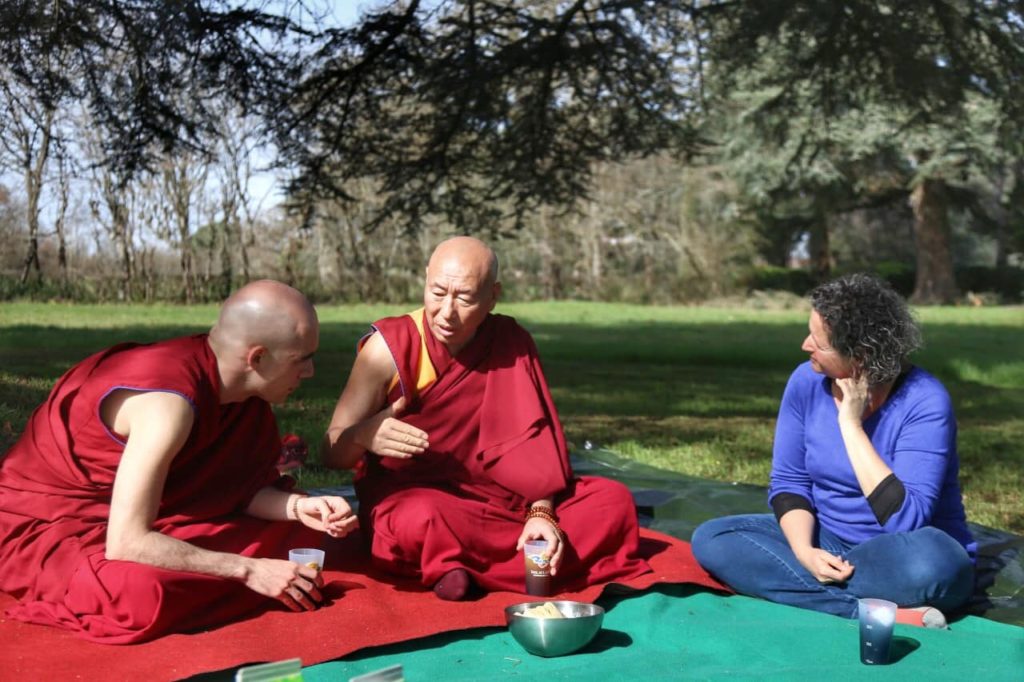
Here, we will look in detail at the clear realizations gained on the various spiritual paths of the hearers, solitary realizers, and bodhisattvas; in addition to becoming familiar with fundamental Buddhist topics such as bodhicitta, the Three Jewels, the two truths, the four noble truths, and the truth body.
Supplement to the ‘Middle Way’ (Madhyamakavatara)
This text contains a comprehensive presentation of the ten perfections, with a specific emphasis on the perfection of wisdom and the presentations of emptiness by both non-Buddhist and Buddhist schools of thought.
Commentary on Valid Cognition (Pramanavarttika)
The teachings on Valid Cognition will focus on logical inference and the establishment of valid authority.
Treasury of Knowledge (Abhidharmakosha)
The teachings on Treasury focus on the chapter presenting actions (karma) and afflictions.
Grounds and Paths of Secret Mantra
Here, we will be presented with an overview of the four classes of tantra, with a particular emphasis on the spiritual grounds and paths within highest yoga tantra.
The Two Stages of Guhyasamaja tantra
An in-depth analysis of the generation and completion stages of highest yoga tantra, based on the Guhyasamaja Tantra
3.2 Extensive description
Ornament
Ornament for Clear Realization by Maitreya is a commentary on the Perfection of Wisdom (Prajnaparamita) texts that serves as a support for understanding the profound teachings on emptiness. It includes a detailed explanation of the spiritual paths of hearers, solitary realizers, and bodhisattvas, together with their clear realizations and abandonments on the various paths. It discusses the precepts and methods for obtaining the meditative stabilizations, clairvoyances, signs of irreversibility, and qualities of Buddhahood, including the thirty-two signs and eighty exemplifications, the four Buddha bodies, and omniscience.
Main texts:
- Ornament for Clear Realization by Maitreya
- The Commentary: Clear Meaning by Haribhadra
- The Explanation: Ornament of the Essence by Gyaltsab Je
Middle Way
Supplement to the ‘Middle Way’ by Chandrakirti explains emptiness as presented by the Madhyamaka-Prasangika system of tenets. The main body of the text consists of ten chapters, each one associated with one of the ten perfections and one of the ten grounds of a bodhisattva. Study of this text leads to an understanding of great compassion and how it serves as a cause for generating the mind of enlightenment (bodhicitta). This text also sets out the various levels through which one proceeds to the attainment of the completion of all ten perfections and enlightenment.
Main texts:
- Supplement to the ‘Middle Way’ by Chandrakirti
- Explanation of the ‘Supplement to the ‘Middle Way” by Chandrakirti
- Illumination of the Thought: An Extensive Explanation of Chandrakirti’s ‘Supplement to the ‘Middle Way” by Lama Tsongkhapa
Valid Cognition
Dharmakirti’s Commentary on Valid Cognition is a fundamental treatise on Buddhist logic and epistemology, presenting the reasons that prove past and future lives and the possibilities of attaining liberation and Buddhahood, through valid cognition (pramana). The teachings on Valid Cognition will focus on logical inference and the establishment of valid authority.
Main texts:
- Commentary on Valid Cognition by Dharmakirti
- Elucidating the Path to Liberation According to the Pramanavarttika by Gyaltsab Je
Treasury
Vasubandhu’s Treasury of Knowledge is a vast description of the outer and inner world according to Buddhism: the various types of migrating beings and their realms; their causes – which are actions and afflictions; minds and mental factors; and the spiritual paths and those who traverse them. The teachings on the Treasury will focus on the chapters presenting actions (karma) and afflictions.
Main texts:
- Treasury of Knowledge by Vasubandhu
- Clarifying the Path to Liberation: An Explanation of the ‘Treasury of Knowledge’ by Gendun Drub, the First Dalai Lama
Secret Mantra
This subject is studied on the basis of either Kirti Losang Trinle’s or Ngawang Palden’s condensed explanations of Lama Tsongkhapa’s Great Exposition of the Stages of the Path of Mantra, presenting the most important features of the four classes of tantra as well as the initiation procedures and particularities of the deity yoga related to each class, with emphasis on the spiritual grounds and paths of highest yoga tantra. Having received a highest yoga tantra empowerment from a qualified teacher is traditionally a requirement for studying this subject.
Main text:
- Illumination of the Tantric Tradition: The Principles of the Grounds and Paths of the Four Great Secret Classes of Tantra by Choje Ngawang Palden
Supplementary text:
- Great Exposition of the Stages of Mantra, by Lama Tsongkhapa
Guhyasamaja Tantra
A thorough explanation of the generation and completion stages of Guhyasamaja. The presentation of the generation stage includes an explanation of the visualization and generation of the mandala and deities and how to carry death, the intermediate state, and rebirth into the path. The presentation of the completion stage discusses the six branches: the isolation of body, isolation of speech, isolation of mind, illusory body, actual clear light, and the union of clear light and the illusory body.
This subject is studied on the basis of the commentaries on the generation and completion stages by Aku Sherab Gyatso. Lama Tsongkhapa’s completion stage commentary, A Lamp to Illuminate the Five Stages, is used for reference.
One needs to have received the highest yoga tantra empowerment of Guhyasamaja from a qualified teacher in order to study this subject.
Main texts:
- A Guide to the Generation Stage Path of Guhyasamaja Called ‘Sacred Words of Akshobhya’ by Aku Sherab Gyatso
- A Memorandum to the Expository Commentary on the Five Stages of the Completion Stage of Glorious Guhyasamaja Called ‘Nectar from the Mouth of Akshobhya’ by Aku Sherab Gyatso
- Self-generation Rite of the Glorious Secret Assembly, The King of Tantras: Arranged for Convenient Recitation in Accordance with the Oral Tradition of the Jang Tse College of Ganden
Supplementary text:
- A Lamp to Illuminate the Five Stages: Core Teachings on the Glorious Guhyasamaja, King of Tantras, by Lama Tsongkhapa
Teacher: Geshe Gyaltsen
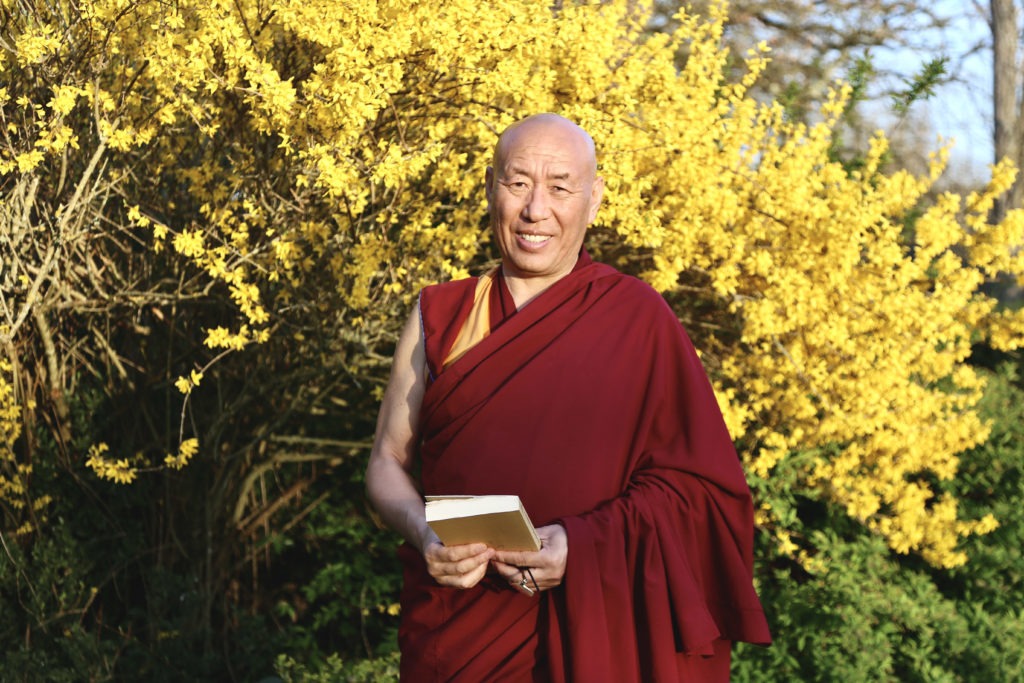
Geshe Gyaltsen was born in Tibet in 1968, in a village named Dzogang, located in the Tsawa region of the Kham province. At the age of 16 he received rabjung ordination in the local monastery of Sang Ngak Chö Khor Ling. At 19 he travelled to Lhasa and received getsül ordination from the Sera Je Geshe Gyaltsen Shakya. He then returned to Kham, where he began the study of philosophy in the monastery of Chamdo Jampa Ling.
Wishing to further his studies and meet His Holiness the Dalai Lama, Geshe Gyaltsen escaped from Tibet by walking over the Himalayan mountain range and reached India in 1990, at the age of 22. He then enrolled in Sera Je Monastery and became a member of the Tsawa college.
In 2007, after 17 years of intensive studies, he attained the qualification of Geshe Lharampa, the highest degree in the traditional Tibetan monastic education system. He then specialised in tantra in Gyümed monastery. After serving for two years as philosophy teacher in the Sera Je school, he became the director of Tsawa college for one year.
After some time spent in retreat, Geshe-la was requested by Lama Zopa Rinpoche to become the teacher of the residential Basic Program in Nalanda Monastery where he has taught since 2014.
Interpreter: Catherine Fradet
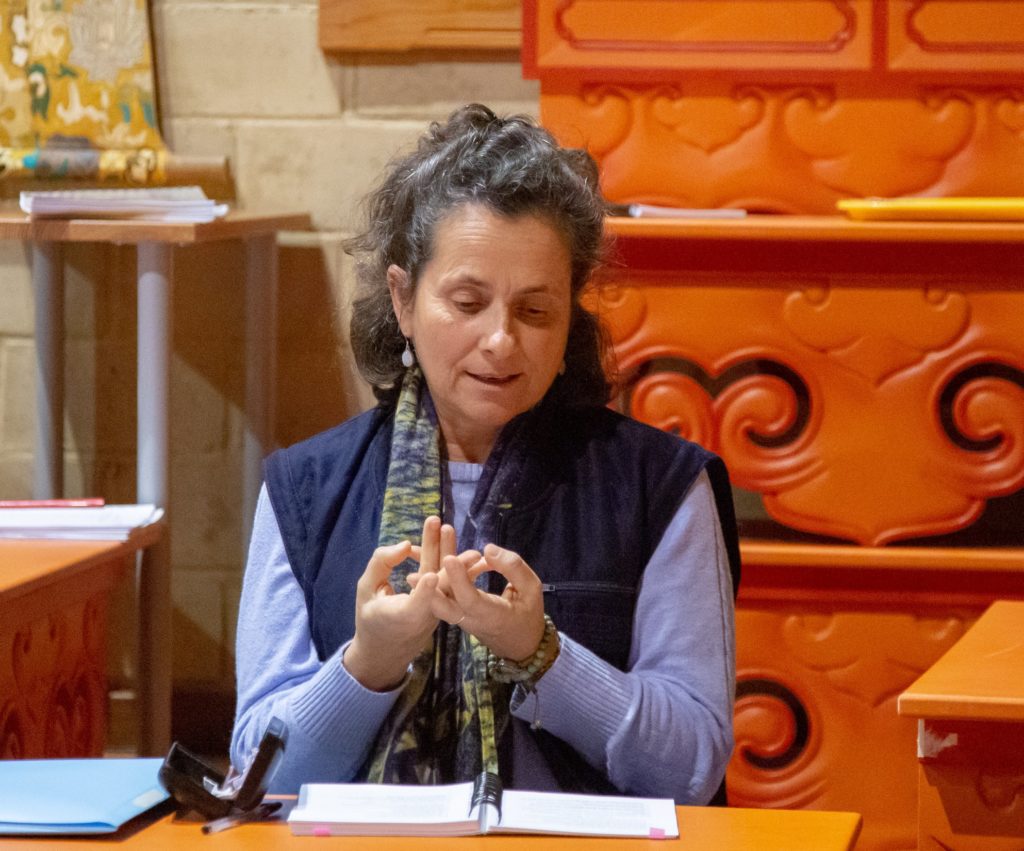
After meeting the Dharma in 1995 in Costa-Rica, Catherine enrolled in the second LRZTP (Lotsawa Rinchen Zangpo Translator Program), 1998 – 2002. She started interpreting in 2000 and has been unstoppable ever since.
Catherine interpreted for two years within FPMT Spain and then during two philosophical programs at Thösamling nunnery, Dharamsala, taught by Geshe Tsewang Nyima. In 2014 she began working at Nalanda where she has served as a skillful interpreter for Geshe Gyaltsen during two consecutive Basic Programs.
She has had the honor of interpreting for His Holiness the Dalai Lama into Spanish, from 2004 to 2014 during teachings in India. She has also interpreted for visiting lamas at Nalanda, such as Ganden Tri Rinpoche and her own teacher, Gaden Jangtse Khensur Rinpoche.
The subjects that she has interpreted include for example the Collected Topics, the Ornament for Realization, all the Basic Program subjects, as well as tantric empowerments and commentaries.
Interpreter: Jinpa Gyeltsen
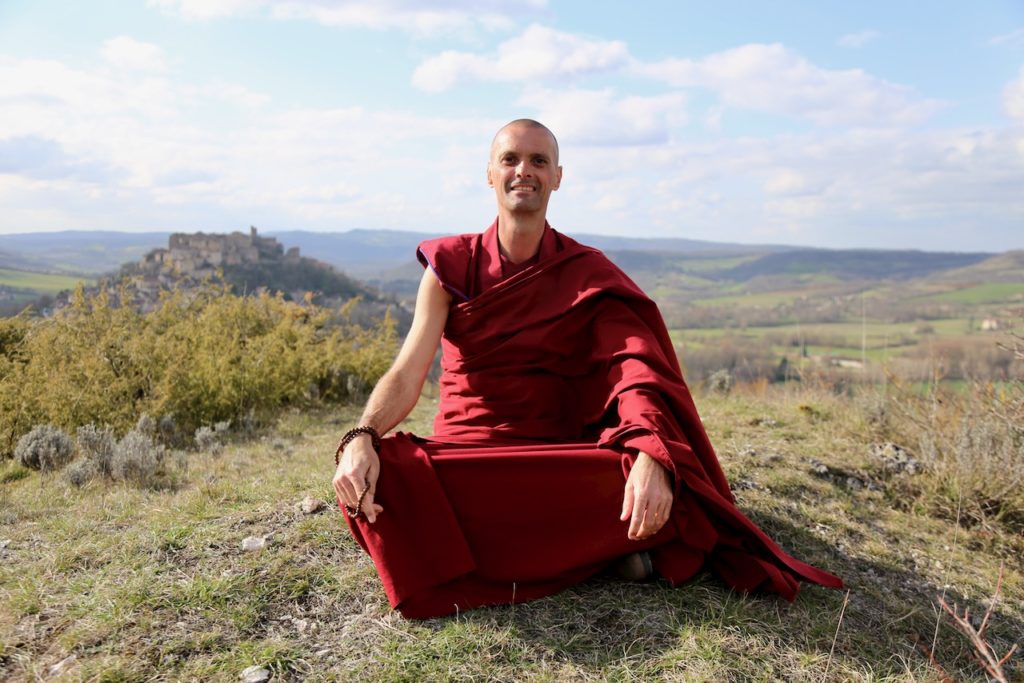
After a first decisive meeting with His Holiness the Dalai Lama in 1993, Jinpa Gyeltsen became one of his numerous disciples in September 2000.
Since 2010, he keeps on training as a translator-interpreter at Shedrub Choekhor Ling (Haute-Savoie) with various teachers mainly from the Drepung Gomang monastery, including the Venerable Othok Rinpoche whom he translates for two years.
In 2017, he joined the Nalanda Monastery team, first as translator-interpreter of Venerable Geshe Gyaltsen (and Katy!), and meanwhile also as facilitator for the French Basic Program of the FPMT. Since 2021 he has been translating for Venerable Geshe Dakpa for the Basic Program of the Kalachakra Centre.
In addition to interpreting for Geshe Gyaltsen, ven. Jinpa will translate some FPMT Masters Program texts and commentaries that are not yet available in French.
We are still working on the weekly / daily schedule. Generally there are 2 hours of teachings per day. Online participation requires around 10-15 hours per week.

What do you have to do for admission? Here follows a check-list:
- Check the information on this page about admission criteria, and attendance and participation requirements
- Attentively read the information about the Main Components of the program; make sure you have a correct understanding of what the program entails
- Plan your finances: make sure you know about the fees
- Submit an application form online
- The FPMT Masters Program coordinator will then contact you
Admission criteria
- Prospective students need to have study- and practice-experience of the Stages of the Path.
- A one-month lamrim retreat is highly recommended, three months is best.
- Ideally applicants should have completed the Basic Program; the Basic Program subjects Mind and Cognition and Tenets are a mandatory prerequisite.
- Previous acquaintance with the FPMT is recommended.
- Applicants should have a good understanding of oral and written English or French.
- Applicants should have a sound financial plan with regard to covering expenses for the period of study.
- Applicants should have a strong wish to deepen their personal understanding of the Dharma so as to be of help to others; ideally they will wish to be of service within FPMT.
- Prospective students need to commit themselves to engage with all aspects of the program and to fulfill all attendance requirements.
- The additional requirements pertaining to tantra need to be fulfilled to study the last two subjects of the curriculum.
- In addition, Nalanda is a monastery and as such certain behavior is required, for example, keeping the five lay precepts: no killing, stealing, sexual activity, lying or taking of intoxicants. More information is provided in the application form
The FPMT Masters Program is an intensive program of study, intellectually challenging and highly scholastic, requiring a great deal of application and commitment. Prospective students need to be aware of this.
Since the studies are academic in nature, students need to have previous familiarity with the teachings on the Stages of the Paths in order to understand where the new information fits into practice.
Students also need to be aware that they will live, or spend a lot of time, in a community and that this sometimes poses challenges and requires patience and flexibility.
| Scholarship | Standard | Sponsor | Monks & Nuns | |
| Monthly | Monthly | Monthly | Monthly | |
| Single Room with shared bathroom | 650 € | 710 € | 795 € | 250 € |
| Double Room with shared bathroom | 480 € | 540 € | 630 € | 250 € |
| Non Residential Study without lunch | 105 € | 135 € | 155 € | 0 € |
| Non Residential Study with lunch | 215 € | 255 € | 295 € | 120 € |
| Study online | 55 € | 95 € | 135 € | 0 € |
While the FPMT Masters Program offers a unique opportunity for personal development through deep and systematic study, completion criteria were established by Lama Zopa Rinpoche that reflect the FPMT centers’ need for excellently qualified teachers, both in terms of academic knowledge and exemplary conduct.
7.1. FPMT Masters Program subject completion
Subject completion requirements include attendance at teachings, tutorials, meditation sessions and retreats, completion of quizzes and exams, and fulfilling the specific requirements for all components of the program, such as daily self-evaluation, ethical conduct and full participation in the service and training components.
An FPMT Masters Program subject completion card indicates that a student has fulfilled the academic, behavior, service, participation and meditation/retreat requirements for that subject.
7.2. FPMT Masters Program completion
An FPMT Masters Program Completion Certificate is issued by FPMT Education Services to students who have completed the entire program.
The FPMT Masters Program completion requirements are:
- Successful completion of all subjects
- Full participation in the three-month review at the conclusion of the program
- Full participation in the final exam assignments as part of the review
- Having fulfilled the one-year lam rim retreat requirement
The Online FPMT Masters Program in Buddhist Studies offers the opportunity to study the MP to those who are unable to join the residential program. You will receive complete teachings from the MP teacher Lharampa Geshe Gyaltsen, have personal support from the MP staff and take advantage of an e-learning environment to support the understanding and practice of the Dharma.
Overview over the program
The teachings are translated from Tibetan into English and French. Students will be provided with translations of the texts and study materials.
In addition to the written course materials and texts, students will have access to audio recordings of the teachings, review classes in audio or video format, supervised forums, and online quizzes and exams.
The Online FPMT Masters Program classes are held for nine months of the year, from mid-January to the end of June, and from the beginning of September to mid-December. The weekly programme includes daily teaching by the MP teacher from Monday to Friday, regular meditations and revision classes led by tutors.
The online program runs parallel to the residential program and is offered in English. Online students are supported in their studies by a qualified tutor.
Given the advanced nature of these studies, online students should expect to commit a substantial amount of time each week in order to reach a good level of understanding of the material.
Exams
Each subject is concluded by one or more exams. The FPMT MP subject completion card indicates that a student has fulfilled the academic, behaviour, participation, and meditation for a subject. Students who have successfully completed all subjects qualify to participate in the three-month review with the final essays assignments.
Retreat
A one-month lamrim retreat is a requirement for completion of the FPMT Masters Program. online
